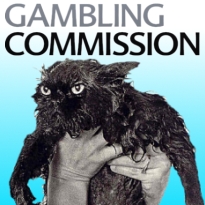 While the BBC was feverishly bunching up its knickers over the allegedly pivotal role of betting shops’ fixed-odds betting terminals (FOBTs) in the decline and fall of the British Empire, the UK Gambling Commission is saying not so fast. The GC’s most recent gambling participation survey – conducted by ICM Research of some 4,000 individuals – showed that the number of respondents who’d reported putting money in a FOBT has actually declined. Of all respondents who reported engaging in some form of betting activity over the past nine months, 1.4% admitted using “virtual gaming machines in a bookmaker’s” shop, compared to 1.8% in 2011. In fact, the highest FOBT participation rate on record was 2.5% in 2009. “Fruit or slot machines” recorded a participation rate nearly double that of FOBTs (2.6%) but here again, the number declined from 2011’s 3.5%. Et tu, Panorama?
While the BBC was feverishly bunching up its knickers over the allegedly pivotal role of betting shops’ fixed-odds betting terminals (FOBTs) in the decline and fall of the British Empire, the UK Gambling Commission is saying not so fast. The GC’s most recent gambling participation survey – conducted by ICM Research of some 4,000 individuals – showed that the number of respondents who’d reported putting money in a FOBT has actually declined. Of all respondents who reported engaging in some form of betting activity over the past nine months, 1.4% admitted using “virtual gaming machines in a bookmaker’s” shop, compared to 1.8% in 2011. In fact, the highest FOBT participation rate on record was 2.5% in 2009. “Fruit or slot machines” recorded a participation rate nearly double that of FOBTs (2.6%) but here again, the number declined from 2011’s 3.5%. Et tu, Panorama?
Looking beyond the betting shops, the GC survey revealed that remote gambling use among Britons was 12.4%, unchanged from 2011’s tally. But strip away those gamblers who only play the National Lottery online and the number falls to 5.5% compared to 6.1% in 2011. Those who opted for online action were far more likely to do so via their computer or laptop (11.2%, up from 11%) than their smartphone (3.4%, up from 2.9%)) or interactive/digital TV (0.9%, down from 1.3%). Men (13.5%) were more likely than women (11.4%) to have engaged in remote gambling, but the male participation rate fell from 14.8% last year while the female rate rose from 10.2%. Broken down by age group, remote gambling was enjoyed by 16.2% of those aged 18-24, 19.8% of those aged 25-34 and 18.3% of the 35-44 bracket. The numbers drop off significantly the older one goes, with just 2.6% of those over 65 having gambled online in the past four weeks.
Interestingly, while the National Lottery’s remote gambling figures are up slightly across the board, the same cannot be said for less pedestrian forms of betting. Remote sports and race betting participation fell from 2.7% in 2011 to 2.1% through the first nine months of 2012. Casino games fell from 0.9% to 0.7%, slots fell from 0.7% to 0.5% and poker fell from 0.9% to 0.5%. Even betting exchange use slipped from 0.5% to 0.4%. Clearly, unless a serious cold snap strikes the UK in the coming weeks, stranding gamblers in their houses with no way to wager except via digital devices, Christmas looks to be a proper humbug for online gambling firms.
With that in mind, we eagerly await the next breathless Beeb documentary on the urgent steps that must be taken if a once thriving UK industry is to not go the way of the coal mines. We imagine a raft of proposals being put on the table: telethons, government subsidies, perhaps even a temporary redirect of some of the BBC’s license fee revenue to help those struggling bookies. What say you, BBC?